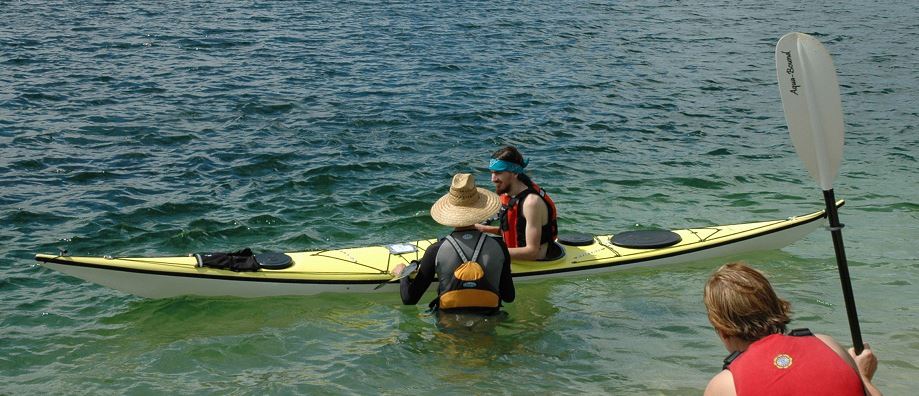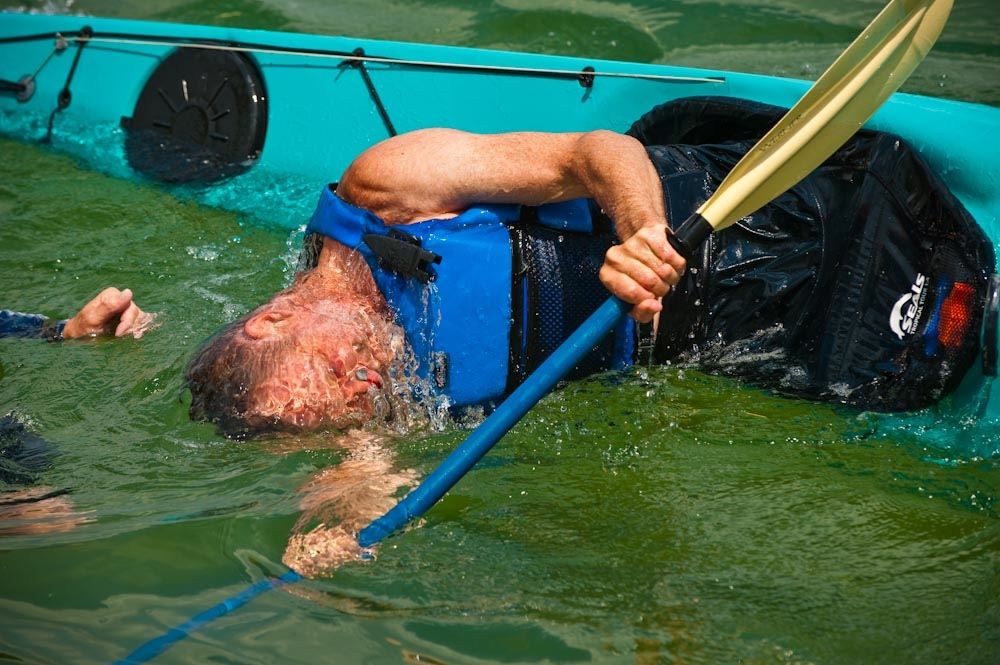Safety
 We love our members. They form our community of paddling companions. Because we love them we want them to have a safe and enjoyable trip each time we go out on the water. That means that safety is a prime focus for the club. So if you’re the type who thinks that a personal flotation device is optional equipment then we’re probably not the club for you! But if safety is important to you please keep reading to learn more about the club’s safety focus.
We love our members. They form our community of paddling companions. Because we love them we want them to have a safe and enjoyable trip each time we go out on the water. That means that safety is a prime focus for the club. So if you’re the type who thinks that a personal flotation device is optional equipment then we’re probably not the club for you! But if safety is important to you please keep reading to learn more about the club’s safety focus.
“I’ve taken both a strokes class and a rescue class with HASK. Both classes have made me a more confident paddler” – Amy O
As with any sport there are certain risks inherent in the sport of sea kayaking. We believe that these can be managed through knowledge, training, preparation, and the application of good judgment and common sense. You contribute to your own safety by selecting trips that are within your abilities, monitoring the weather and water conditions, having the required gear, being observant on trips and discussing any concerns with the Trip Leader. Members can use the trip planning portal to monitor the weather and expected paddling conditions.
 In addition, we strongly feel that the better informed, trained and practiced you are under controlled conditions the better you’ll be able to handle any unexpected situations that might arise. We provide club members with opportunities to participate in both on and off-water training via formal and informal paddling workshops, safety talks at club meetings and safety briefings before every trip.
In addition, we strongly feel that the better informed, trained and practiced you are under controlled conditions the better you’ll be able to handle any unexpected situations that might arise. We provide club members with opportunities to participate in both on and off-water training via formal and informal paddling workshops, safety talks at club meetings and safety briefings before every trip.
We highly recommend that members take advantage of these opportunities. We only ask that no one participate in any training, trip or event that they feel is outside of their comfort zone. That said, if you want to stretch your skills outside of your comfort zone we’re happy to help you with that, too (an Eskimo rolling class, perhaps?)
“HASK has great instructors who are unfailingly patient and helpful” – Halcyon L
Occasionally a trip leader may suggest a lower level trip or training if he or she feels that you’re not ready for or don’t have the appropriate gear for a trip or training you’ve signed up for. Trip leaders also have the right to modify or reschedule a posted trip or
to turn away participants as necessary to ensure a safe and enjoyable paddle for everyone.
Here's a list of some of the safety talks given at recent club meetings. Club members can access these by clicking on this link:
- Making yourself visible when paddling
- Avoiding collisions with power boats
- How to use a VHF radio
- VHF Radio Calling Protocol
- Calling for help in an emergency
- US Coast Guard vessel safety check - what you need to have on board your kayak
- Hypo and hyperthermia recognition and treatment
- How to safely cross channels